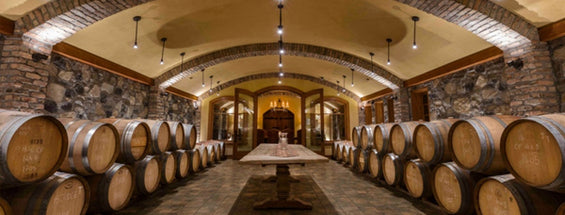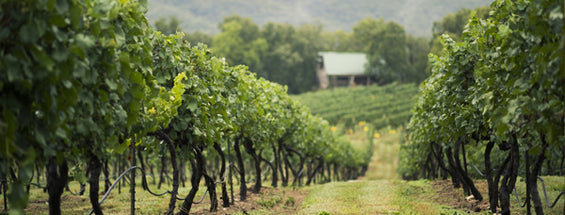Winery Info/Brand
Château Cos d'Estournel spreads over 91 hectares. The Cabernet Sauvignon vines (60% of the vineyard) find the soil of their choice in the thin layers of gravely soil situated on the top and on the southern slopes of the hill. On the other hand, the Merlot vines (40% of the vineyard) excel on the eastern slopes and on the slopes where the Saint-Estephe limestone bed shows on the surface. The percentage of Cabernet and Merlot varies from one vintage to another according to the year weather conditions, benefiting successively to the one or the other. Plantation is extremely dense (8000 to 10000 vines per hectare) and the average age of the vineyard is high (35 years old on the average) in order to enable the roots to extend excessively and to obtain a very slender yield per vine that will create the "Grand Goût" Only the wines coming from over 20 years old vines will have the name of Château Cos d'Estournel.


Region Info/Origin
Saint-Estephe is located marginally further away from the gravel-bearing waters of the Garonne river, and the soil here is far less stony than that found in the southern part of Haut-Medoc. Instead, a heavy clay base dominates this area, resulting in poorer-draining soils, delayed ripening and higher acidity levels in the wine. These factors mean that Saint-Estephe's blended wine are predominantly made from Merlot, as it performs better on clay soils than Cabernet Sauvignon. Because these wine are often austere and tight in youth, Merlot also serves to soften the palate.




